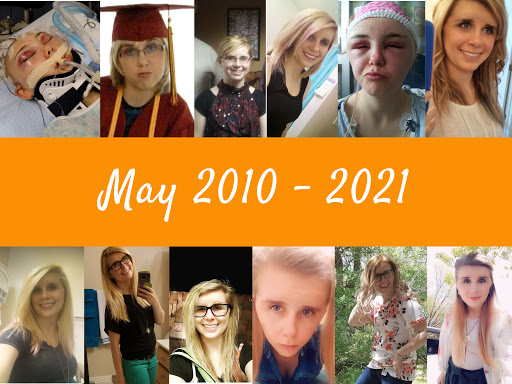You only get one monumentally phrased
anniversary – the decade. About 8 months ago when my rapid transformation
started, I was ready to acknowledge this day with both solemnity and enthusiasm.
However, as chaos emerged, progress slowed and as the impending arrival of this
day got closer, I became more and more apathetic. I’ve pictured this day very,
very different many times. While I’m not where I wish I was (emotionally), I believe
it would be thoughtless not to offer 10 things I’ve learned throughout this
painful journey. Although I could say so much about brain injuries, I’ve picked
10 things that are vital to everyone.
2.
Family not only makes the best of friends, love
you unconditionally, are the most important, but are also the only ones that
matter. However, family doesn’t always mean by blood.
3.
Gratitude can physically heal the soul. So, be
grateful in everything; find something to be grateful for everyday and record it in a journal.
5.
We were sent to the Earth as members of a
society for a reason. Connection is something that we all need and we should
treat it with great respect.
6.
True happiness is possibly the greatest gift we
have, when we can find it. Don’t take it for granted for even a second.
7.
The music that you listen to literally affects
how your brain is wired; so, listening to good, uplifting music should be a
necessity.
9.
Sleep. Need I say more?
10.
Put first things first; when you can’t move
forward, sometimes it’s because you need to heal the past. Grief is a normal
emotion that needs to be gone through, even though it can be grueling.
To conclude the first decade of my
recovery, I know I have a purpose, but I have no idea what it is. There is
simply no other explanation for me having gone through everything that I’ve
gone through and being where I’m at today. I felt a strong conviction that I
asked God for the chance to return so I could testify of His Son, Jesus Christ; His life, His love, and His power. I know that He lives, He loves us infinitely and incomprehensibly and through that love, He allows us to access His power to move mountains.
